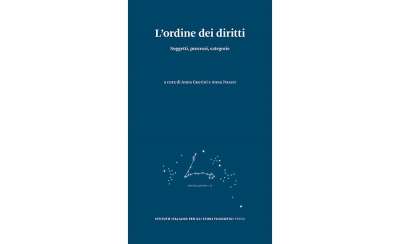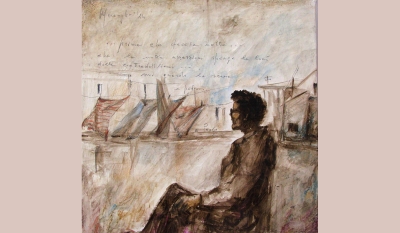L'incontro si terrà in presenza e sulla piattaforma Zoom. Per iscrizioni alla piattaforma Zoom inviare richiesta di adesione all'indirizzo Questo indirizzo email è protetto dagli spambots. È necessario abilitare JavaScript per vederlo.
Per ricevere l’attestato della frequenza online occorre farne richiesta all’indirizzo Questo indirizzo email è protetto dagli spambots. È necessario abilitare JavaScript per vederlo. entro il giorno precedente l’inizio del seminario. Non saranno accettate richieste che non rispettino tali indicazioni
Seminario
Andre Gingrich (Austrian Academy of Sciences and University of Vienna)
Human Interactions with Environment in South Arabia
Mercoledì 27, ore 10
Land and Water in a Tribal Cosmology of Contemporary North Western Yemen
Rain and in fact, any kind of drinkable water are assets of God’s Grace (Baraka). By contrast, land that is or may be cultivated represents an aspect of humans’ honour (Sharaf). In this nutshell version, the Munebbih view on two among the most important aspects of their environment in many ways closely resembles those of other tribal mountain farmers in the northern Yemeni and south western Saudi highlands - and one might even argue that it is not too far away from any agricultural group under the influence of monotheist cosmologies. Yet a few things are more specific to this case. First, the lower somebody descends down the slopes of the Munebbih mountain, the more important wild pasture lands become to one’s honour, as opposed to tilled fields and terraces. Second, anywhere in the lower and higher slopes, there are vast pockets of land that are not used by humans at all, except for purposes of sorcery and witchcraft - these are the homes of jinnis and other demons. And thirdly, the top of the mountain (“al-‘Urr”, a Himyarite toponym) is the site of regular rain sacrifices (istighatha). Hence these are one of the few places where through ritual, humans may come very close to the Almighty. In short, their encounters with the environment reveal the basic hierarchies within a tripartite Munebbih worldview, with a diversity of tribal humans being placed below the Almighty and above the dangerous forces of magic and witchcraft.
Mercoledì 27, ore 16
Seasonality and its Implications in Ancient South Arabia
For long periods of the academic research record, archaeologists, epigraphers and philologists have primarily focused on the great dams of Ancient South West Arabia when scrutinizing the history of these pre-Islamic entities that have informed European imagery about King Solomon’s Encounter with the Queen of “Sheba” in the Old testament, about the three Holy Kings bringing frankincense and myrrh on the occasion of Christ’s birth, or about “Arabia Felix” in the perceptions of Hellenism.
Being very favorably situated along crucial long distance routes between South Asia, East Africa, and the Mediterranean shores certainly was one decisive factor that promoted the emergence of Ancient South Arabian polities. A second decisive factor was the capability of these empires under Sabean dominance first, and of Himyarite hegemony subsequently, to integrate a variety of local and regional cultures into their wider imperial domain. It is therefore not merely useful, but indispensable to re-direct the analytical focus beyond the great dams of Marib and its parallels, but to also see how the economic and ritual centers around those great dams were interacting with important and very diverse “peripheries”. A closer focus on cyclical time rhythms with a consideration of seasonality and its impacts is very helpful in this regard. Not only does it elucidate the structural variations among communities of foragers (hunters and gatherers), of fishing folks, of fully specialized pastoralists, and of mixed farming groups. Moreover, such a focus helps to better understand that here were staggered seasonalities operating “within” these small-scale communities as well as “between” them and the major centers with their specific dam-based irrigation systems.











